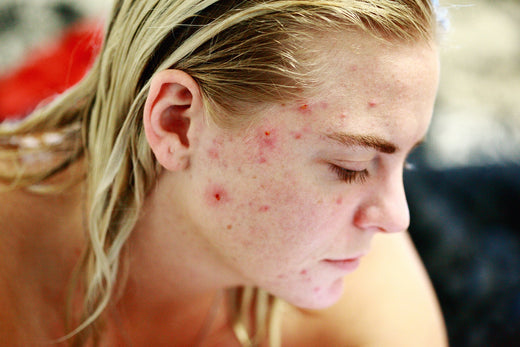
What Causes Acne?
For those of us who suffer from persistent and seemingly never ending breakouts, the question “what causes acne” has probably been considered time and time again. Growing up we’re told that “it’s a phase” and that we’ll “grow out of it.” But when we’re in our 20’s, 30’s or even 40’s and still seeing the splotchy redness in the mirror, we wonder if it’s something we are doing to cause the breakouts. We wonder if there’s some aspect of our lives that we can change in order to make the acne go away. Ehealthmd.com gives 4 basic causes of acne. They are: overactive oil glands, blockage of the skin pores, activity of normal skin bacteria and inflammation.
Sebum is a fatty oil that is produced by the sebaceous glands. Sebum’s general purpose is the keep our skin and hair moisturized. Acne becomes an issue when the sebaceous glands produce excessive amounts of sebum (this generally happens in our teenage years are begins decreasing when we reach our 20’s.) When too much sebum clogs up our pores, acne breakouts appear.
Now it’s well known that bacteria don’t directly cause acne, however, according to ehealthmd.com “When oil is trapped in the hair follicles, the normal skin bacteria P. acnes will grow in the blocked pore. The bacteria produce chemicals that alter the composition of the oil, which makes it more irritating to the skin and causes inflammation.” Inflammation is additional irritation, redness or swelling that can further aggravate breakouts.
Additional factors contributing to what causes acne may include hormones, stress and not taking proper care of your skin. It’s up to us to make sure we’re taking good care of our skin, using products that are right for our skin types and not overdoing it with the harsh treatments. Additionally, there are sometimes things we can do to decrease the stress we are dealing with in our lives. Things like yoga, meditation and getting enough sleep can help our bodies more effectively deal with stress.
Sometimes we need added help in dealing with our continual acne. Prescriptions or supplements may be helpful in controlling our hormones or skins’ oil production. Seeing a dermatologist and finding out what causes acne for you may help you to see what your options are for managing your acne.


Leave a comment